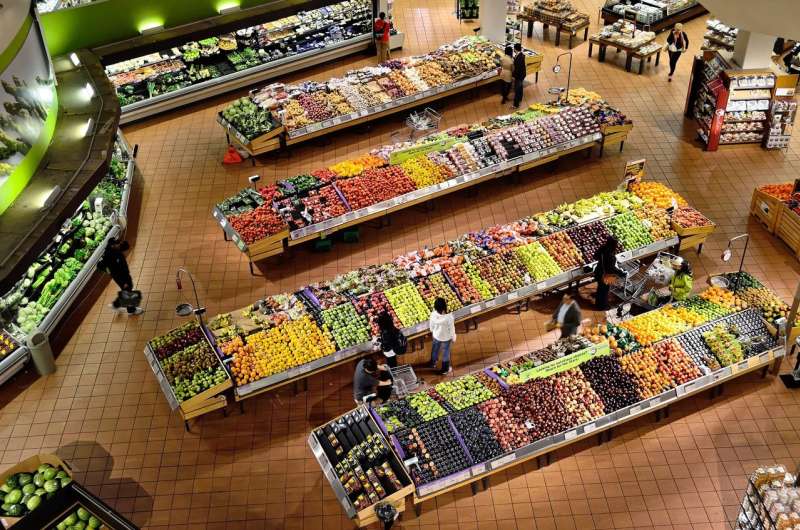Supermarket produce harbors antibiotic-resistance genes

Researchers from the Julius Kühn Institut, Germany have found that produce is a reservoir for transferable antibiotic resistance genes that often escape traditional molecular detection methods. These antibiotic resistance genes might escape cultivation-independent detection, but could still be transferred to human pathogens or commensals.
The results, which highlight the importance of the rare microbiome of produce as a source of antibiotic resistance genes, are published November 6 in the open-access journal, mBio.
Produce is increasingly recognized as a source of pathogenic bacteria, antibiotic-resistant bacteria, and antibiotic resistance genes. This study aimed to explore methods to characterize the transferable resistome—the collection of antibiotic resistance genes present in bacteria—associated with produce.
The researchers analyzed mixed salad, arugula, and cilantro purchased from supermarkets in Germany by cultivation and DNA-based methods.
These results confirmed that cultivation-independent DNA-based methods are not always suf?ciently sensitive to detect the transferable resistome in the rare microbiome, such as that of produce.
Journal information: mBio
Provided by American Society for Microbiology

















